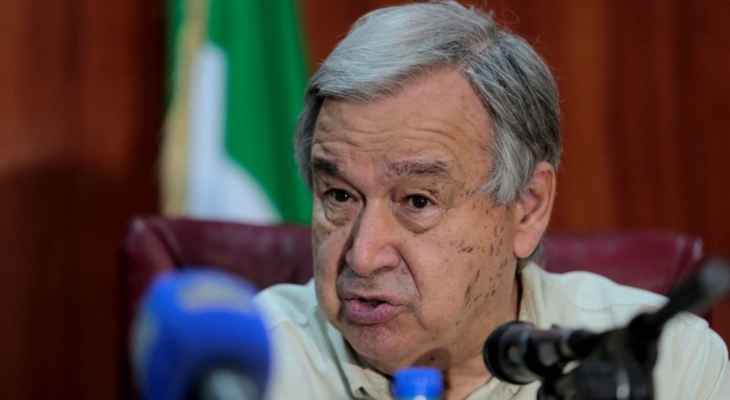United Nations Secretary-General António Guterres emphasized in his message on World Environment Day that “this planet is our only home”, warning that “Earth’s natural systems are unable to keep pace with our needs” and emphasized that “It is critical to protect the health of the planet’s atmosphere, to protect the richness and diversity of life on Earth, its ecosystems and its limited resources, but we are unable to do so.”
He warned that “we need a large part of our planet for unsustainable lifestyles. This is not only harming the Earth, but also us.” It regulates the climate and provides protection from extreme weather events.
Guterres noted that “it is necessary to manage nature wisely and ensure fairness in the use of its services, especially for the most vulnerable people and societies”, adding that “more than a million species of plants and animals are threatened with extinction.” , and many of them will become extinct in the coming decades.” And that almost half of humanity is already in the climate danger zone, where it is 15 times more likely to die from climate impacts such as extreme heat, floods and droughts.
He stated that “we must all take responsibility to avoid the catastrophe caused by the three crises of climate change, pollution and biodiversity loss” and added: “Governments must also urgently prioritize action to combat climate change and protect the environment, decision-making in the field of climate change”. Government policy encourages sustainable progress.
To this end, the Secretary-General has proposed “five practical recommendations to significantly accelerate the pace of renewable energy adoption across the board, including making renewable energy technologies and feedstock accessible to all, reducing bureaucratic complexity, and reorienting financial subsidies.” “, urging businesses to “place sustainability at the heart of their decision-making practices for the sake of humanity and, ultimately, for their own good.”
In turn, noted the Executive Director of the UN Environment Program Inger Andersen, “World Day was born at a UN conference in 1972 in the Swedish capital with the understanding that we must work together to protect air, land and water. on which we all depend.”
She explained, “Today, as we look to a present and future filled with heat waves, droughts, floods, wildfires, epidemics, polluted air and oceans filled with plastic, our actions are more important than ever and we are moving forward. against the clock.”
Source: El Nashra
